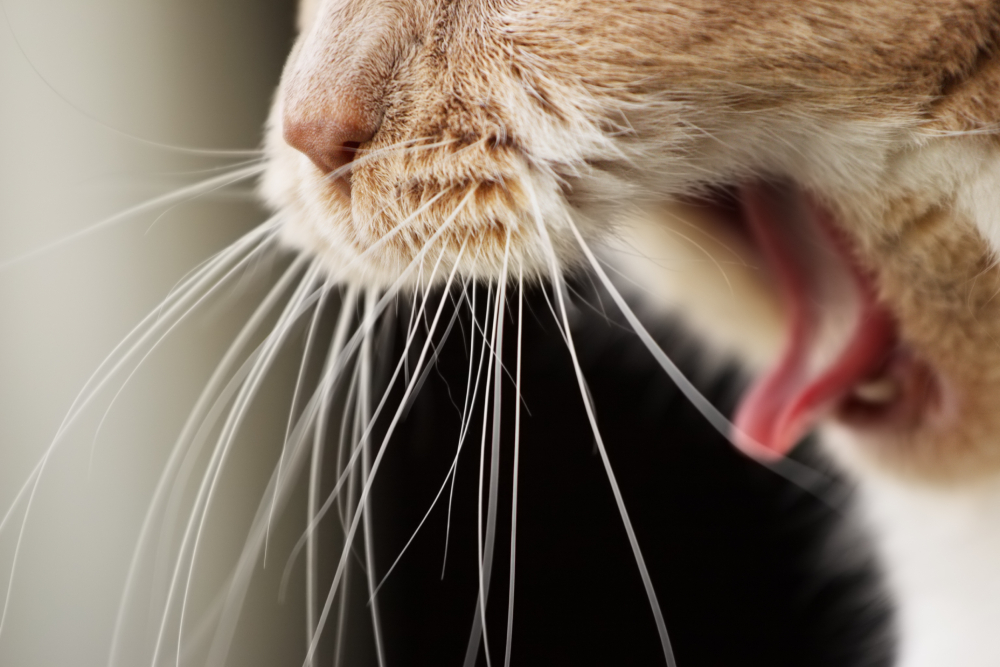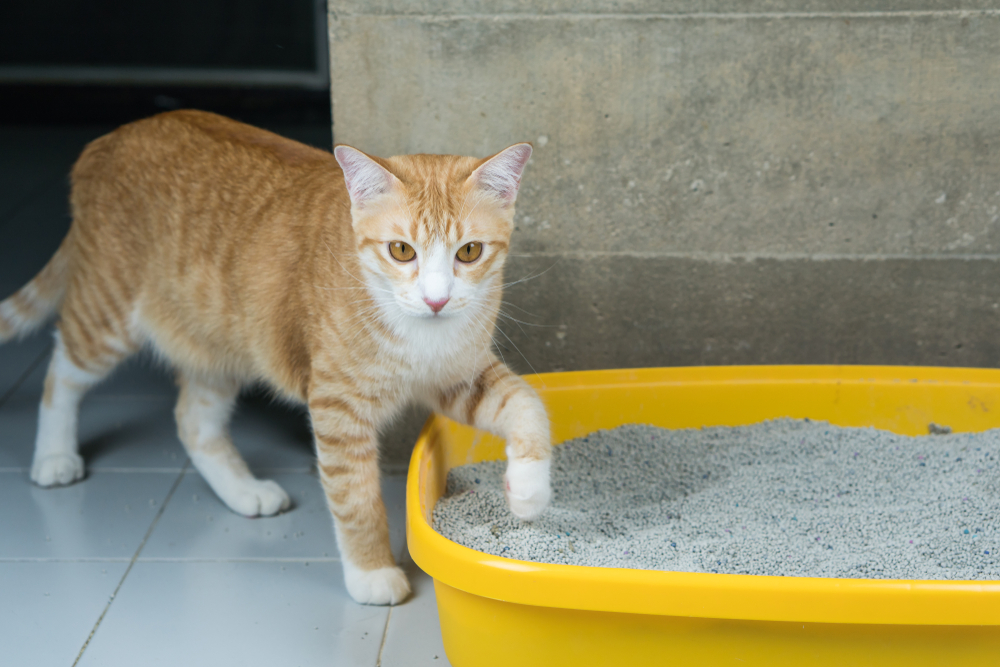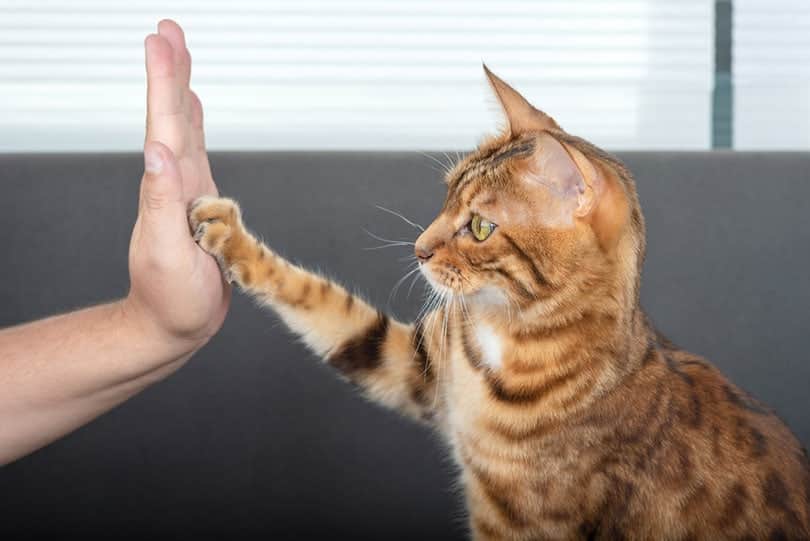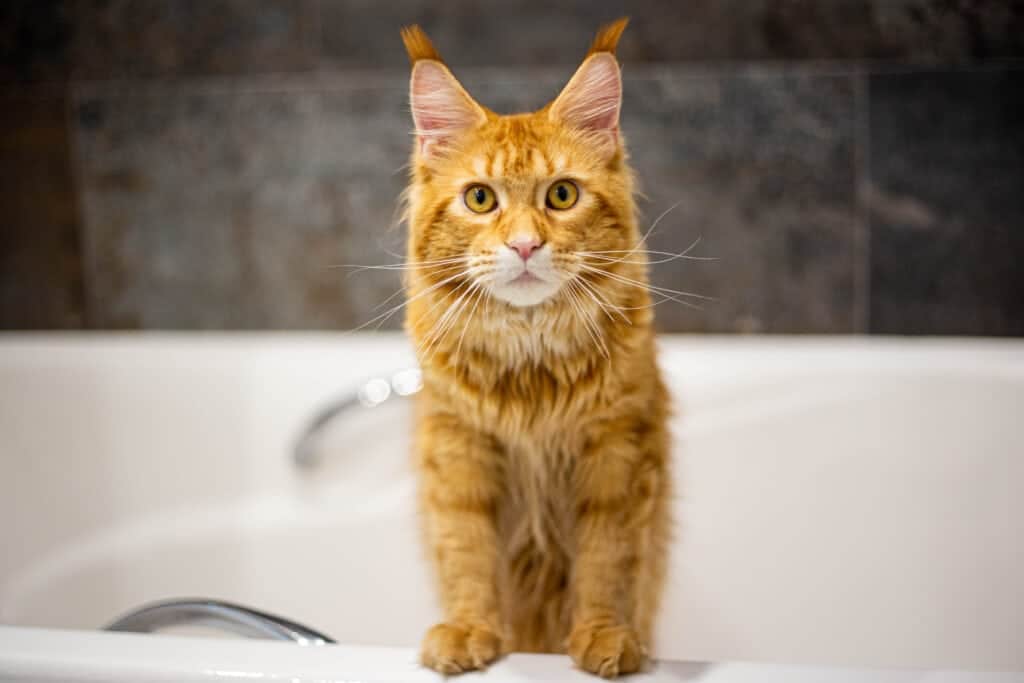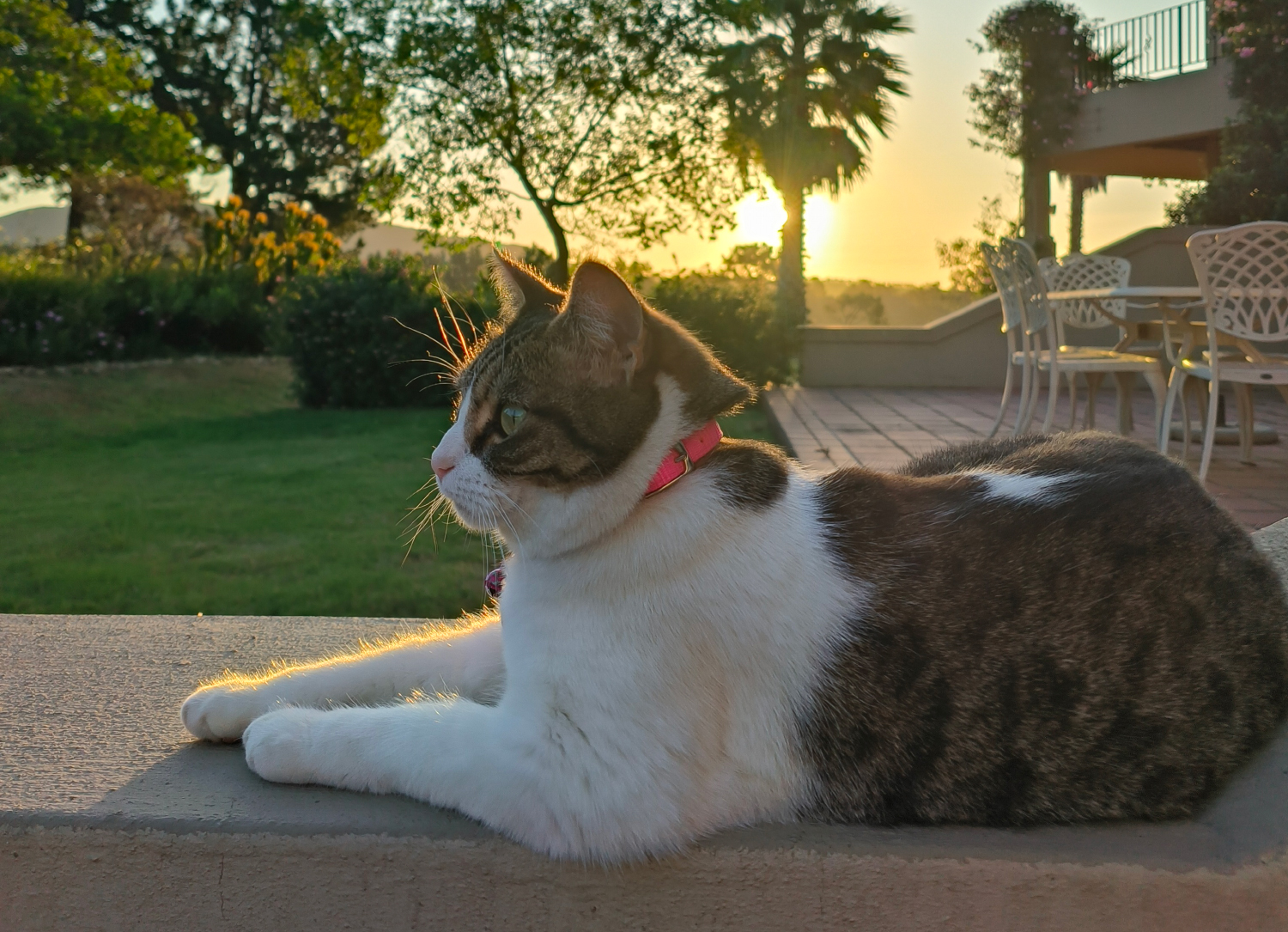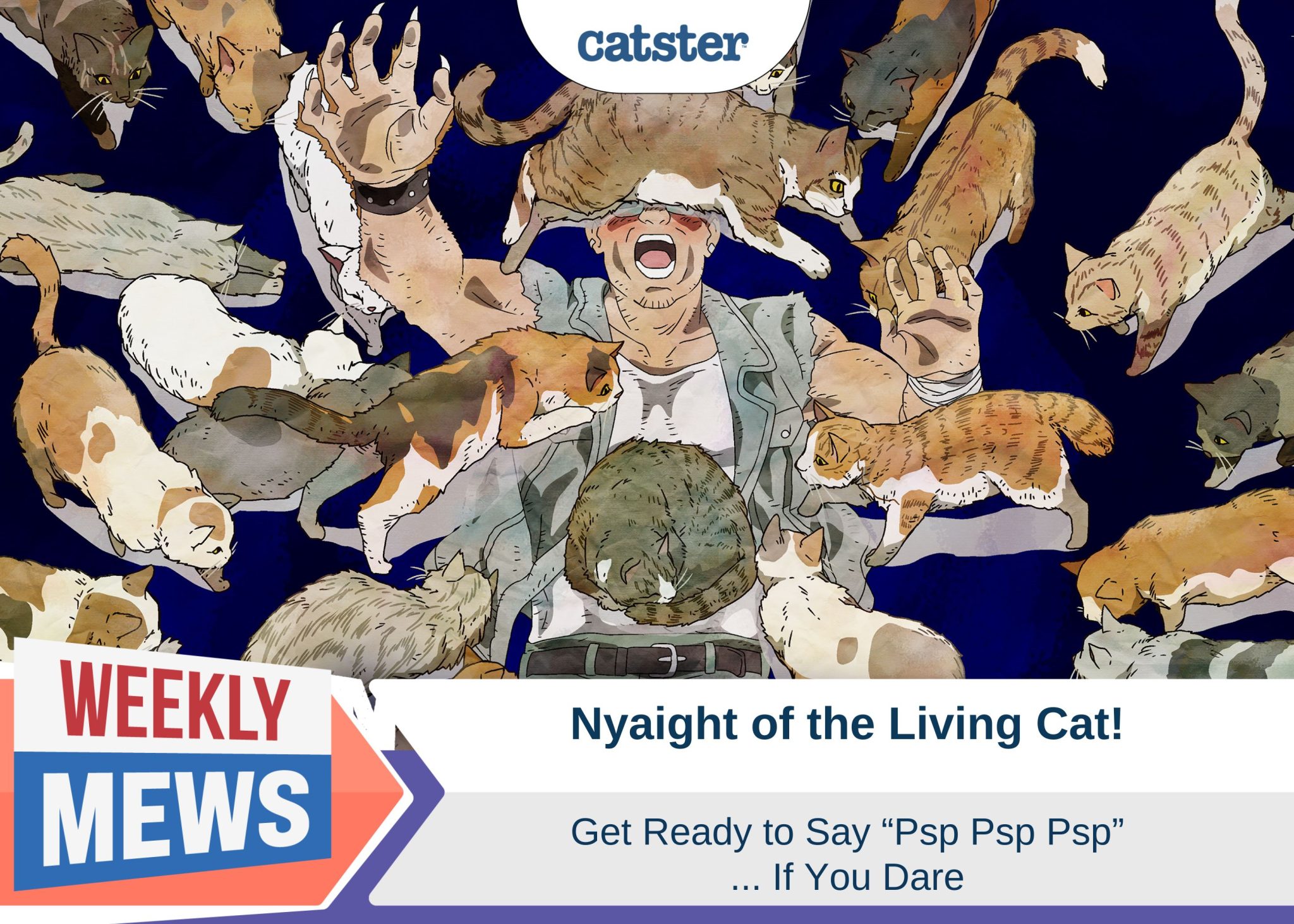Click to Skip Ahead
Cats, like all living things, are vulnerable to various diseases, including bacterial infections. But can cats get strep throat? Cats can contract different strains of Streptococcus, most commonly S. canis. However, in extremely rare cases, they can contract the strain group A Streptococcus, which in humans causes “strep throat.”
Can cats get strep throat like humans do? Let’s find out.

Signs of Streptococcal Infections In Cats
Strep throat is a bacterial infection in people caused by group A Streptococcus, also called Streptococcus pyogenes. According to current publications and a “medical mystery” article in the Washington Post, it is very unlikely that a cat will catch this from their human family. However, as the story outlines, it does happen at times.1
When group A strep is present in cats, they tend not to display any signs, with the bacteria resting in their throat, nose, or fur. However, a study published in 2020 has shown that S. pyogenes is present in a very small percentage of cats (and dogs) suffering from respiratory illness, while some of the strains were resistant to penicillin and other antibiotics.2
A scientific paper published in 2023 presented what seemed to be the first recorded case of a human contracting Streptococcus zooepidemicus, a strain usually present in horses, pigs, and dogs.3 This strain is becoming more common in feline respiratory cases, and the person in question seemed to have contracted it from their ill cat.
Cats are much more likely to carry a strain of strep called Streptococcus canis, which has been occasionally isolated in humans with different skin, joint, urinary, or respiratory infections.
This streptococcal strain is a normal part of the bacterial microflora in cats, residing in the mouth, upper respiratory tract, genital organs, and perianal region. Not all cats develop a clinical illness, but it depends on many factors, such as their age, underlying illness, stress, immune system, and others.
- Abscesses and skin infections with swelling and discharge
- Respiratory illness and pneumonia, with coughing, lethargy, poor appetite, nasal discharge or difficulty breathing
- Mobility issues and pain due to joint and bone infections
- Urogenital infections with fever, urinary signs, and discomfort
- Inflammation of the throat and tonsils with enlarged lymph nodes
In serious cases, illness may sometimes lead to fatal meningoencephalitis or sepsis, particularly in neonatal kittens or shelter animals.
If your cat shows signs of the symptoms above or you suspect they might be suffering from underlying health issues, you should contact your vet.
If you need to speak with a vet but can't get to one, head over to PangoVet. It's an online service where you can talk to a vet online and get the advice you need for your pet — all at an affordable price!
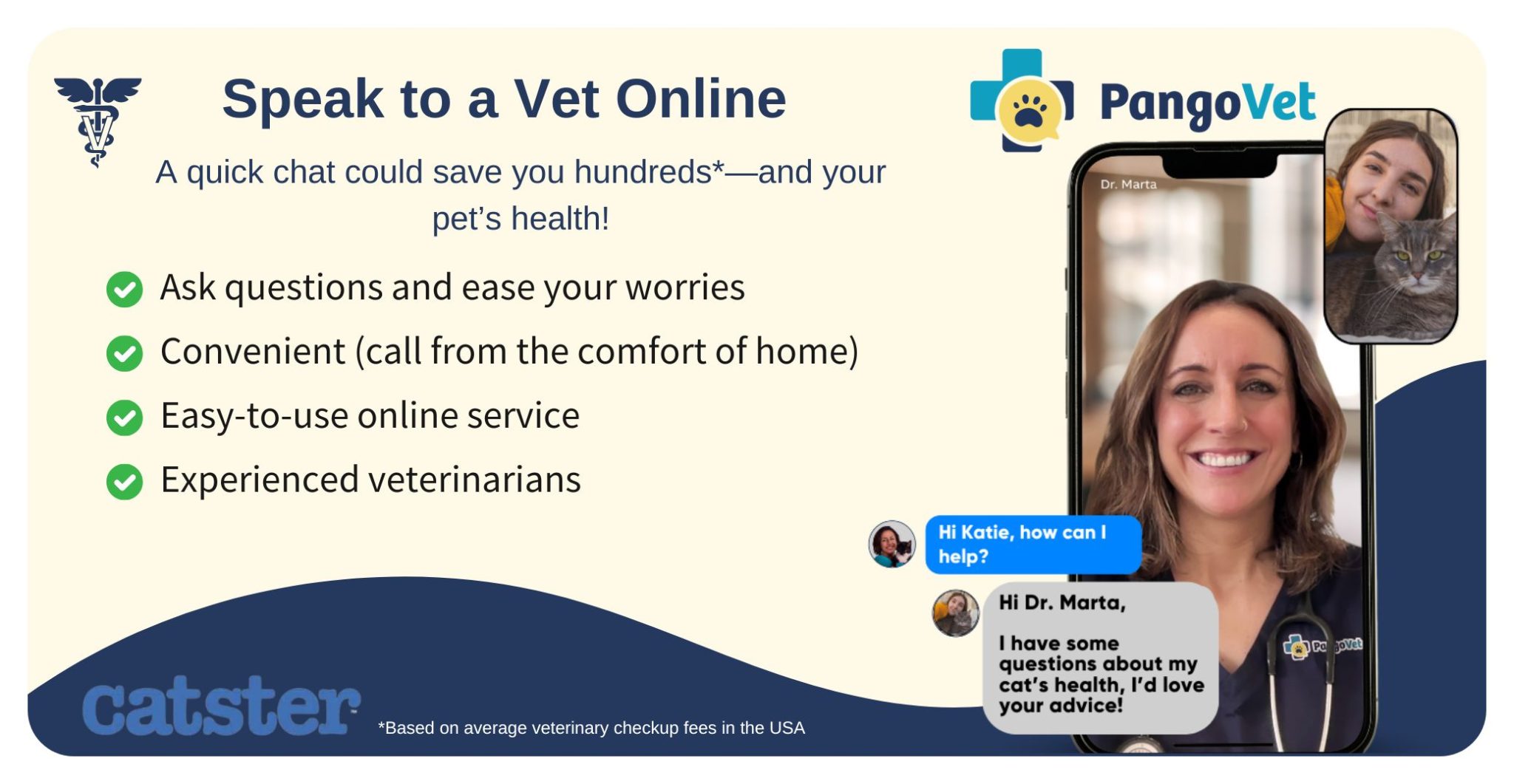
How to Treat Strep Throat In Cats
Though having strep throat may sound like a simple infection, it can lead to serious complications if not treated in time. Anytime you notice your cat acting not eating as well, being lethargic or withdrawn, having breathing issues or nasal discharge, or behaving as if in pain, stay on the safe side and give your vet a call.
Because all of the variations of strep are bacterial infections, a round of antibiotics prescribed by your vet is required for your cat if they have strep. Your vet will also likely tell you to encourage your cat to drink more water and to be tempted with wet or warmed-up food, as hydration also aids in speeding up recovery. If your cat stops eating or drinking, they should return to your vet promptly.
Ensuring that your cat drinks enough water can be challenging, but with a little creativity and the right fountain, it can be achieved. Hepper's Stainless Steel Cat Water Fountain is a great product that will motivate your cat to stay hydrated by providing fresh, flowing water. This model is easy to clean and offers excellent triple filtration, multiple flow modes, and a large capacity, making it an excellent choice for your furry friend.
- Premium 304-Grade Stainless Steel - This metal cat water fountain is hygienic, with superior...
- Serene & Healthy Cat Drinking Fountain Experience - With whisper-quiet pumping & an advanced...
- Say Goodbye to Dehydration - Provide your cat with a constant source of flowing water with this...
At Catster, we’ve admired Hepper for many years and decided to take a controlling ownership interest so that we could benefit from the outstanding designs of this cool cat company!
In addition to these requirements, you should give your cat more TLC than usual, pampering and reassuring them while providing privacy from other pets and family members.
If you or another family member are experiencing any signs of a sore throat or tonsillitis, please consult your doctor as soon as possible.

Strep Throat in Cats Prevention
Streptococcus Canis
To prevent or reduce the chances of your cat developing clinical illness due to S. canis bacteria, you first need to understand which populations are more vulnerable to the disease.
Kittens are particularly sensitive, especially if they have not had an adequate amount of high-quality colostrum that ensures the transfer of maternal antibodies, and their immune systems still need to develop sufficiently to combat the bacteria. Conversely, senior cats may also have a compromised immune system due to old age or underlying illness.
With these vulnerable groups, be extra careful to keep them isolated from big groups of other animals, like in a kennel or a multi-cat household. In such scenarios, they are more likely to get infected with strep. Healthy animals with no signs of illness may spread the bacteria to more susceptible animals.
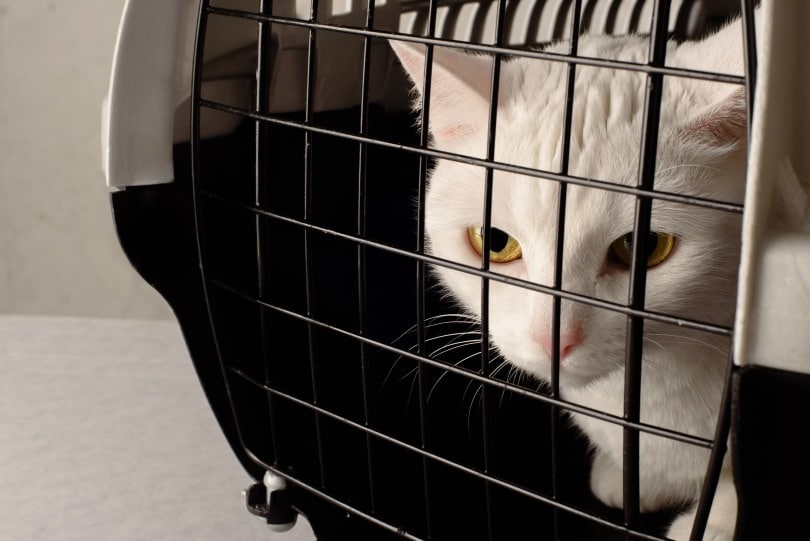
Group A Streptococcus
For classic “strep throat” prevention, minimize contact with family members known to have strep throat with your cat until they are better. This strep is transmitted through droplets sneezed or coughed into the air or through shared drinks and food.
So, this means no shared food with an infected person and a cat, which you shouldn’t do anyway due to many human foods being potentially harmful or unhealthy for cats, and definitely no getting your face close to your kitty if you have a sore throat.

Conclusion
Cats harbor their own strains of Streptococcus, and some have the potential to cause health issues. However, the classic strep throat people commonly get rarely affects cats. When it comes to streptococci, most cats will experience no signs at all and look like very healthy cats. In contrast, young kittens, senior cats, and those with underlying illnesses exposed to stress or overcrowding, such as cats in shelters or multi-cat households, may be more prone to developing clinical illness. If your cat seems sick or in pain, talk to your vet straight away to get the help you need.
Related Reads:
- Can Cats Catch the Flu from a Person? Everything You Need to Know!
- Pneumonia in Cats: Causes, Signs & Care (Vet-Approved Explanation)
Featured Image Credit: Suzanne Tucker, Shutterstock

